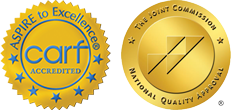Marriage is a profound and meaningful commitment that requires dedication and support from both partners. When addiction to drugs or alcohol enters the picture, it can create a destructive environment, straining the relationship and causing emotional turmoil. Navigating addiction and recovery in a marriage is challenging, but with love, understanding, and persistence, it is possible to restore the relationship. This article offers insights into helping marriages heal from drug or alcohol addiction.
Support, Love, and Understanding in Recovery
Recovery is an ongoing process for the addict, and having the support of loved ones can make all the difference. Addiction often leads to despair and isolation, making it crucial for those in recovery to have people around them who understand their struggles and offer unwavering love and support.
The Impact of Addiction on Relationships
Addiction is like a disease, harming not only the individual but also those around them. It disrupts daily life, physically affects the body, and leaves an emotional void. This emptiness can lead to further substance abuse and compulsive behavior, perpetuating a vicious cycle that can result in divorce, co-dependency, or other forms of separation.
Recovery Process in Relationships
Seeking Help
The first and often most difficult step in recovery is admitting that there is a problem and seeking help. Support groups such as Alcoholics Anonymous or Al-Anon can provide understanding and guidance on living a sober life.
Building a Support Network
Finding a mentor or friend who can help navigate the recovery process is essential. This support network should also include strengthening relationships with friends, family, co-workers, and partners, as their love and encouragement are invaluable during this journey.
Open Communication
Maintaining open and honest communication with your partner is critical for rebuilding trust and addressing any emotional wounds caused by addiction. Couples should discuss their feelings, fears, and expectations throughout the recovery process.
Do you have a loved one struggling with addiction?
We know how hard that can be. Give us a call to find out what options you have.
Rebuilding Trust and Intimacy
Restoring trust and intimacy in a relationship takes time and effort from both partners. This process may involve couples counseling or therapy to address any underlying issues that contributed to addiction and establish healthier communication patterns.
Maintaining Sobriety
Staying committed to sobriety is an ongoing process that requires continuous work and support from loved ones. As individuals progress through their recovery journey, they must remain vigilant and dedicated to avoiding relapse.
Embracing a New Identity
As recovery progresses, individuals will begin to develop a new identity centered around growth and healing. Sharing their experiences with others and seeking guidance from those who have faced similar challenges can help solidify this new identity.
Long-Term Recovery and Relationship Success
Once the individual reaches a stable point in their recovery, they can focus on maintaining a healthy, fulfilling life without substance abuse. By continuing to grow and nurture their support network, they can enjoy a lasting, loving relationship with their partner.
Conclusion
Addiction can have a devastating impact on marriages and families, but recovery is possible with dedication, communication, and support from loved ones. By understanding the challenges faced during recovery and working together to overcome them, couples can rebuild their relationships and enjoy a happy, meaningful life together.





